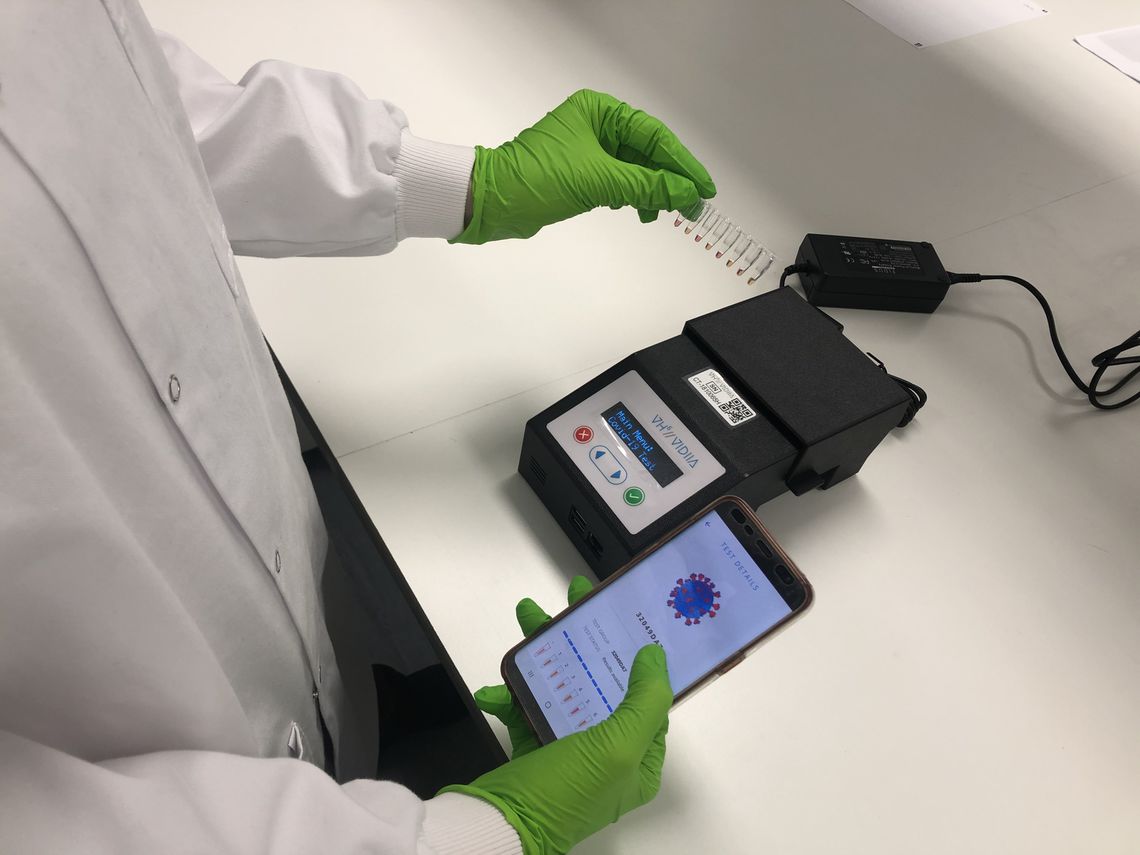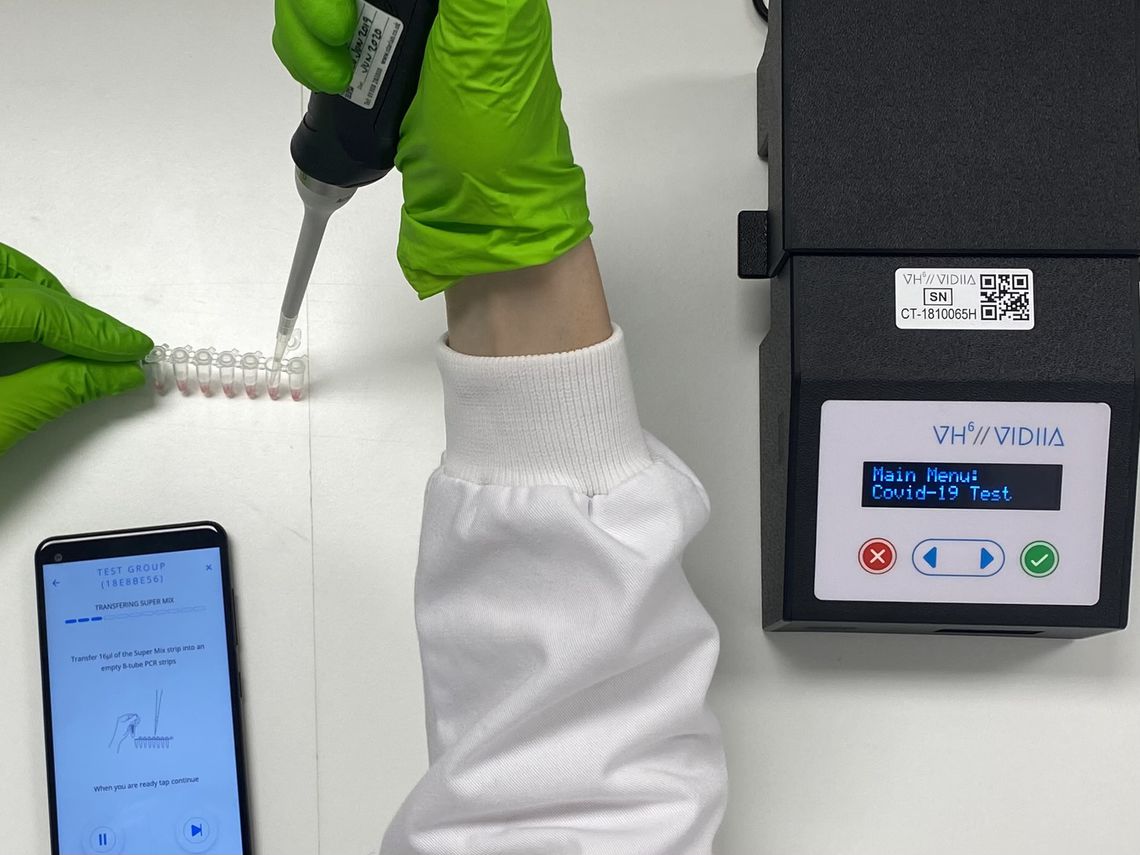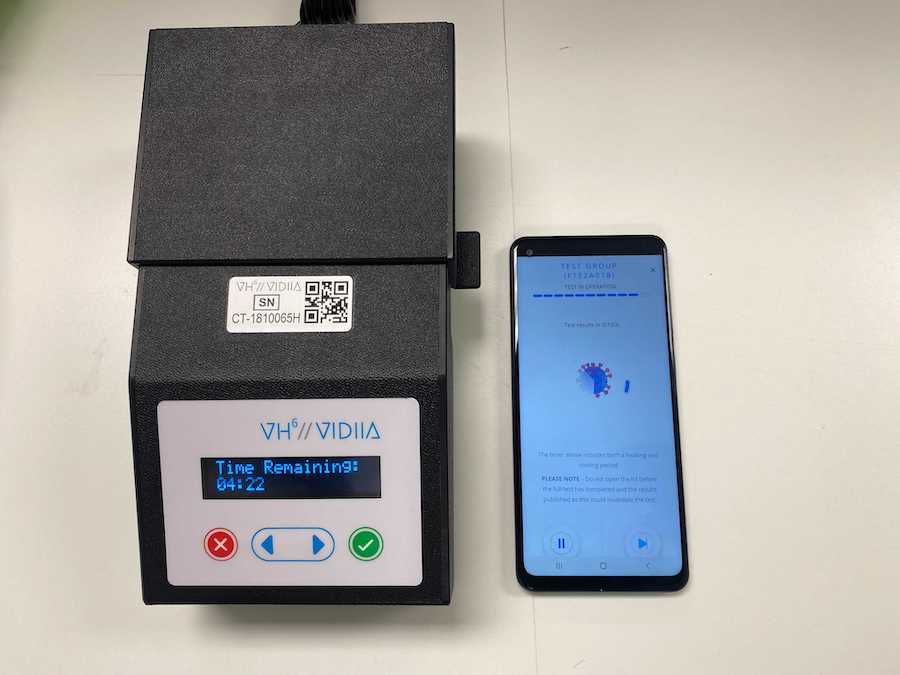This week the device has been granted official approval of its registration with the MHRA (The Medicines and Healthcare products Regulatory Agency).
The new COVID-19 testing device that uses LAMP (Loop-mediated isothermal amplification) technology can already boast impressive credentials, beating competitors slowly emerging in the market by using built in AI and machine learning to give results within 20 minutes.
The VH6 device and testing kit designed in collaboration with 3 top UK universities: Brunel University London, University of Surrey and University of Lancaster is small and portable and can be operated on location, without the need for samples to be sent away to laboratory. A significant contributing factor is the inactivating buffer developed by the team. Crucially it can test up to 6 patients simultaneously using nasopharyngeal swab samples to further boost its mass-testing credentials.

David Rimer, CEO of Vidiia explained “It’s a terribly important time for the company to ensure that we make the VH6 and test kit available as widely as possible and at speed. We have been working extremely hard with the universities to ensure that we launch a device and testing process that is highly accurate and stable – we are delighted that the MHRA approval of our registration has pushed us one step closer to this”.
The test originally designed using the skills of virologists, veterinarians, and engineers across 3 leading UK universities was created specifically to identify viral and bacterial pathogens in chickens and previously used in The Philippines following the spread of avian flu amongst the poultry industry there. In March 2020 following the arrival of a global Coronavirus pandemic, professors and researchers across the university consortium, responsible for the original design of the avian infectious disease diagnostic test, successfully adapted their solution to test humans and hunt signs of COVID-19 virus RNA to detect COVID-19 (SARS-CoV-2-RNA) in a controlled, fast and accurate way.
Professor Max Lu, President and Vice-Chancellor of the University of Surrey, said: "While the COVID-19 pandemic has devastated communities across the globe, it has also revealed humanity’s resilience and determination, particularly as exemplified by our universities who are at the forefront of research and innovation to find solutions. I am proud that our collaboration with Brunel University London, Lancaster University and industrial partners on this rapid COVID-19 test technology has met with such success. Reaching this significant milestone means that this innovative technology will make a real impact in helping to defeat this virus."
Vidiia was formed in June 2020 as a medical technology company to lead and drive the commercial success of manufacturing the device and developing further requirements of this critical product. British production is now complete on the first batch of testing devices and kits - the small portable LAMP device is being manufactured by GBE in West Sussex, UK and is already CE-IVD compliant.


Professor Julia Buckingham CBE, Vice-Chancellor and Principal of Brunel University London, said: "We're delighted this pioneering project can now progress to the next phase towards speeding up COVID-19 testing at this critical time. Early results are very encouraging, and we are proud to work with Vidiia and with the Universities of Surrey and Lancaster to see how the test performs in different clinical settings and to understand where it might have the biggest impact on care."
Lancaster University Vice Chancellor, Professor Andy Schofield added: “Rapid and accurate testing has never been more important in the fight against Covid-19. Lancaster University is proud to have contributed to this new diagnostic testing kit, using University research to create impact in the real world. The successful collaboration between all three Universities and Vidiia has produced promising results for a fast and accurate test.”
Virus Hunter 6 is available to purchase now as a de-centralised point-of-care solution for use in locations where business continuity is required, multiple patients require testing simultaneously and results of tests are necessary within a 20-minute timeframe.

